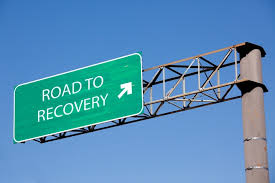What I’m Thankful For, 2025
Thursday, November 27th, 2025(An update from 2024)
By Bob Gaydos
 This was going to be a rant, then I remembered it was Thanksgiving and I can always rant about the same stuff and the same people another day, so it’s going to be a gratitude column. Better for my health and yours. Better to be thankful than bitter. Better to enjoy the day. (It’ll also be shorter.)
This was going to be a rant, then I remembered it was Thanksgiving and I can always rant about the same stuff and the same people another day, so it’s going to be a gratitude column. Better for my health and yours. Better to be thankful than bitter. Better to enjoy the day. (It’ll also be shorter.)
So what am I thankful for? Let’s start with the confidence, after 60 years of writing, to know that sometimes it’s OK to end a sentence with a preposition. Or a proposition. Thankful, in large part, that at my age, although some components of my body have slowed down or simply broken, the brain seems willing and able to do this writing stuff every day. Sometimes, it insists.
Thankful, of course, for readers across the years, who have been there to give me encouragement, criticism and feedback and continue to do so today. Without you, I’m an old man talking to myself.
I’m thankful for the teachers, colleagues and mentors I’ve had along the way and even the bosses who didn’t appreciate my unique talent. Although I didn’t appreciate it at the time, they taught me humility and how to look for a new job.
On a more personal level, I’m thankful for growing up in Bayonne, N.J., in the 1950’s. Soda shops, sock hops, Johnny Mathis. Sinatra, too. For family and friends, old and new, who have provided love and support and still help me to be open to new challenges, new ideas, new vitamin supplements.
Thankful for science and the fact that I have successfully gone from typing my story or column on an Underwood manual typewriter to a Taiahiro Gaming Keyboard, which takes my iPhone hostage. Thank you, Gilbert.
For Max and Zack and filling the birdfeeders on a sunny day. For sushi, salt and vinegar potato chips, thin, crisp, New York pizza, Ben & Jerry’s Cherry Garcia, baseball, tall trees, an occasional hot dog, coffee, guacamole, artists and poets, cataract surgery, Bill Wilson, first responders, wonton noodle soup, music, food in the fridge, talented surgeons, electric blankets, horses and dogs. Cats, too.
Thankful in these times of political turmoil and anger for departed friends like Victor, who constantly reminded me, “Bobby, isn’t it great to be present in your own life?” Once upon a time, people used to call me Bobby. Thankful for Evelyn, who always reminded me that everything was another “fine” growth opportunity. And for discovering Eckhart Tolle, whose message on my phone keeps reminding me that there is only now. There is no next. Got it.
I’m also thankful that I’ve learned how to get in and when to get out. I tried to keep this under 400 words, but I guess I have more to be thankful for than I thought. Thankful for that.
Happy Thanksgiving to all you loyal, wonderful readers, who give me the incentive to keep on doing this every day.
Bob
(Please don’t be shy. Thank you for sharing your thankful thoughts in the comments below with the rest of us.)


